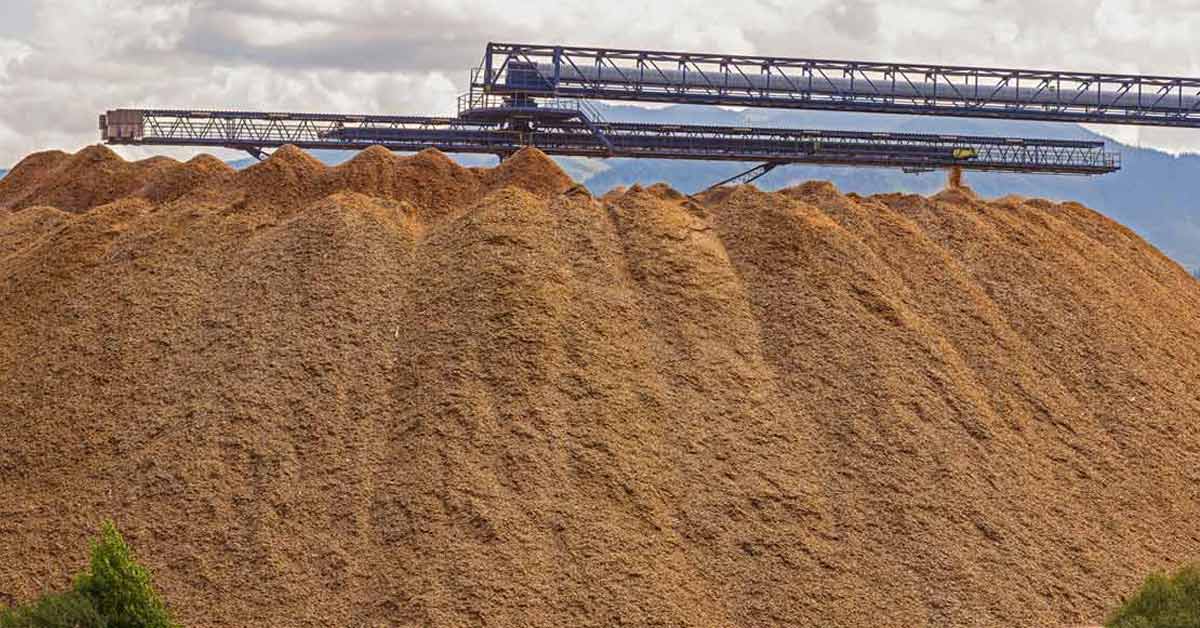3 min read
With Volatile Global Wood Products Market, How Will Q4 2023 Play Out?
ResourceWise
:
Oct 13, 2023 12:00:00 AM

Global wood fiber and related products have experienced ongoing volatility. Economic instability, post-COVID complications, and geopolitical strife have all contributed to the unstable market.
Some products, such as pulp, have seen price drops after hitting records in 2022. Others, like wood fiber, have remained high in price across several regions.
How have various global regions responded to the current economic conditions they face? And what sorts of news and events are impacting the wood products/pulp and paper industries?
In this post, we’ve compiled some internationally focused news related to global wood markets. These insights can give you a snapshot of some critical industry happenings.
Global Pulp Prices Continue Falling After Record High in 2022, Wood Fiber Costs Rising
(Source: Hakan Ekstrom, Director, ResourceWise International Forest Products Sector)
According to data from Wood Resources International, global wood pulp costs have seen a steady drop since the end of 2022. They hit a record high at this point after demand disruptions surged prices post-pandemic. As the market moves, there are some potential opportunities for producers to start seeing increases to close out 2023.
Related: Wood Market Dynamics and the Impact on Pulp and Paper: Current Trends
Conversely, global wood fiber prices have kept going up in many markets. The increases have come mostly due to decreased lumber production and a lower residual supply on hand.
Download our market insight report to learn more about global pulp, wood fiber, chip, and pulpwood pricing trends for Q4 2023.
Valmet Supplies Gothenburg Energi in Sweden with Wood Chip Heat Technology in Plant
(Source: Valmet Press Release)
Finnish pulp and paper system manufacturer Valmet announced that they will supply a renewable heating technology plant to Sweden’s Gothenburg Energi.
Valmet has championed the transition out of fossil fuels and into recovered and renewable sources. A significant amount of its company focus is developing energy and fuel solutions to aid in the world’s carbon transition.
Valmet will provide a 140 MWth bubbling fluidized bed (BFB) boiler plant to the facility. The main fuels in this system include general woody biomass from forest residues and recycled wood chips.
The state-of-the-art technology reflects a commitment to sustainable resources and highly efficient fuel usage. The plant is slated to begin operating sometime in 2025.
British Columbia Invests Big in Fiber Recovery Efficiency, Aiding Economic State of First Nations
(Source: BC Gov News)
British Columbia is providing as much as $1.34 million to support upgrades for a wood products manufacturing facility. The investment is directed toward Armstrong’s Woodtone Specialties. The move connects the province’s aims to directly invest in improving economic factors for Canada’s First Nations while moving toward broader sustainability milestones.
The facility upgrades will accomplish the following objectives:
- Improve overall wood fiber recovery (and reduce waste products).
- Enhance operational efficiency, saving energy and operational costs.
- Add a new line of products which will add at least 50 jobs at Woodtone Specialties.
Woodtone Specialties produces several types of consumer and commercial wood products, including siding, paneling, trim, and posts. The new product line will create siding using cedar and second-growth knotty fascia.
The facility already operates by using second-growth wood fiber and waste wood. This investment will improve its energy efficiency and reduce its carbon footprint even more.
North Carolina State University Lead Charge to Reduce Emissions Across Pulp and Paper Industry
(Source: NCSU College of Natural Resources News)
Ongoing attention has been paid toward developing sustainable operations in the pulp and paper industry. Case-in-point: the US Department of Energy has provided a $2.6 million grant to researchers at NC State to further this broad objective. Researchers will seek out alternatives in the primary kraft process which turns wood into wood pulp for use in paper and packaging.
Typically, the kraft process combines wood chips with chemicals such as sodium sulfide and sodium hydroxide. Pressure and temperature then break down chips into a softer, wet wood pulp.
Major carbon emissions are caused through recovery boilers which burn off chemical and wood residues after the pulping process. NC State researchers aim to find an alternative to recovery boilers through the use of eutectic solvents. The solvents better dissolve by-products like lignin, and the conversion yields far less carbon output than a recovery boiler.
Support for research like this highlights the pathway to decarbonization that major industries such as pulp and paper are moving toward.
Learn More About Global Wood Markets and Pricing
Wood Resources International, a ResourceWise company, continually monitors news and trends that impact major wood commodity pricing. Our flagship platform, WoodMarket Prices, provides international pricing data dating back to 1988.
What are the current pricing trends for wood fiber and pulp, and what can we expect for the rest of 2023?




![[Video] Molecules to Markets Episode 1: Chemical Markets Begin 2026 in a Supply-Driven, Margin-Sensitive Environment](https://www.resourcewise.com/hubfs/images-and-graphics/blog/chemicals/2026/weekly-video-series-molecules-to-markets/CHEM-Weekly-Video-Series-Molecules-to-Markets-Episode-1.png)
